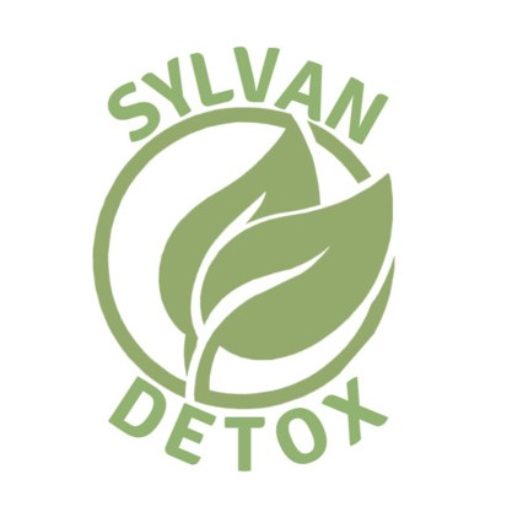Alcohol Use Disorder also referred to as alcohol dependence, alcoholism, and alcohol addiction is a chronic disease characterized by uncontrolled drinking and preoccupation with alcohol. Alcoholism can affect people of almost any age, and most certainly has impacted every major demographic we track in the United States. There are groups that are more susceptible to alcohol dependence, but there is no segment of society that escapes its grasp. The positive result of so many people being affected by this disease is that there are many avenues for treatment. Signs of alcoholism are not always obvious, and sometimes family members and friends may need to seek professional assistance in order to determine if one of their loved ones is struggling with alcohol dependence or alcohol addiction.
If you or a loved one is suffering from any form of addiction or abuse, please call Sylvan Detox at (818) 308-3099.
This is where Sylvan Detox can help. We provide services to people who are in a cycle of alcohol abuse, have developed an alcohol dependence or addiction, and their loved ones. Through our levels of care, we can help guide you on your way to a happier and healthier lifestyle. Call us today to discuss the early signs of alcoholism, symptoms of alcohol abuse, treatment plans, and all of our care options.
How is Alcoholism Defined?
Alcoholism is defined as, “the inability to control drinking due to both a physical and emotional dependence on alcohol.” Strong needs or urges to drink alcohol are among the symptoms. People with Alcohol Use Disorders (AUD) may struggle to regulate their drinking, keep drinking even when it creates issues, or experience withdrawal symptoms when they drastically cut back or quit. Counseling, such as behavioral therapy, and drugs that lessen the desire to drink are used in treatment. For certain people, medical detoxification is necessary to safely cease drinking. Mutual support groups assist individuals in quitting drinking, controlling relapses, and adjusting to necessary lifestyle changes.
Alcoholism, alcohol dependence, and alcohol addiction are terms that are often used by the general public interchangeably. However, they do have slightly different meanings. In general, alcoholism is the inability to control one’s drinking, for a number of reasons, as mentioned above. Alcohol dependence points to the physical reliance a person develops after abusing alcohol over time. At this point, an individual most likely needs to drink every day. It may not be a lot, which is why signs of alcoholism and alcohol dependence are not always obvious. When a person in this state does stop drinking, they will experience physical withdrawal symptoms, even if they have no real mental or emotional attachment to drinking. These can include the following:
- Shakiness
- Sweating
- loss of appetite
- Nausea or vomiting
- Fast heart rate
- Body tremor
- Headaches
- Insomnia
- Seizures
Alcohol addiction is a condition where a person is affected not only physically, but also mentally and emotionally by their drinking. Their drinking will not only be triggered each day by physical need, but also by mental and emotional factors in their life. There are additional withdrawal symptoms they will experience when they cease consuming alcohol that can accompany the physical side effects of quitting drinking that include:
- Agitation
- Restlessness
- Irritability
- Anxiety
- Nervousness
- Disorientation
In the end, Alcohol Use Disorders can affect individuals in many different ways, depending on many factors that are different for each person. These include how long they have been drinking, how much they drink each day or each week, how old they are, their general physical health, and their mental and emotional status.
Trends and Statistics about Alcohol Abuse
Throughout the years, different trends and statistics regarding alcohol abuse have emerged. Here are a few that have been noted in the United States and around the world by major organizations, hospitals, rehab clinics, and other scientific data analysis groups:
- According to Massachusetts General Hospital, Using data from a national survey of U.S. adults on their drinking habits that found that excessive drinking (such as binge drinking) increased by 21% during the COVID-19 pandemic, the scientists also simulated the drinking trajectories and liver disease trends in all U.S. adults which resulted in the possibility of significantly higher rates of deaths from alcohol-related liver disease, liver failure, and of liver cancer.
- In May of 2022, the World Health Organization (WHO) published research that found that worldwide, 3 million deaths every year result from the harmful use of alcohol. This represents 5.3% of all deaths around the globe.
- According to the 2019, National Survey on Drug Use and Health (NSDUH), a division of the National Institute on Alcohol Abuse and Alcoholism (NIAAA), 85.6 percent of people ages 18 and older reported that they drank alcohol at some point in their lifetime.
- The NIAAA also has reported a new and disturbing trend referred to as “high-intensity drinking,” which refers to any time a person drinks double the gender-specific binge drinking threshold. Drinking at this rate of consumption greatly increases the probability of the need for medical attention.
12 Early Signs of Alcoholism
There are many early signs of alcoholism and these depend highly on the individual person, their personality, their general health, and their mental and emotional well-being. Some early signs of alcoholism may not seem like things that would develop immediately but are still considered to be the beginnings of alcohol dependence or alcohol addiction. Regardless, here are some signs to look for if you have concerns about one of your loved ones and their alcohol consumption:
- Regular binge drinking (Drinking excessive amounts of alcohol on a single occasion.
- “Blacking out” (memory loss caused by drinking)
- Difficulties controlling the amount they drink.
- Persistent Alcohol Use Despite Awareness of Issues
- Swearing they’ll cut back or stop but have trouble doing so.
- Putting aside responsibilities and other activities like home and property care, financial obligations, family commitments, job requirements, and hobbies.
- Experiencing withdrawal symptoms when they try to cut back or quit drinking
- An increase in their drinking tolerance
- Gets into legal trouble often (as a result of alcohol use)
- Is dealing with friction within work and personal relationships
- Becoming emotionally withdrawn from family and friends
Someone may start drinking for a number of reasons. This includes drinking socially with no initial negative impacts to their life. Family history and genetics can sometimes increase the possibility that a person will struggle with alcoholism. A person may begin increasing the amount they drink regularly as a way of trying to deal with stress, anxiety, or depression. This can be a very slippery slope. This can also work against them in multiple ways, as they may have or develop an underlying, cooccurring mental disorder. In these cases, a dual diagnosis treatment protocol must be used in order to address both of the issues a person has at one time.
Sylvan Detox Can Help You Overcome Alcoholism and Achieve Sobriety
The best thing anyone can do is seek treatment for alcoholism. It does not matter if you have suddenly started binge drinking every weekend for the last few months or have consumed alcohol every day for five years. There are types of treatments for everyone. No one should ever need to fight drug abuse, drug addiction, alcohol abuse, or alcohol addiction on their own. If you or one of your loved ones is struggling with alcohol, call us at Sylvan Detox today to review our levels of care and treatment plan options. We are here to help you achieve sobriety and lead a better life.

